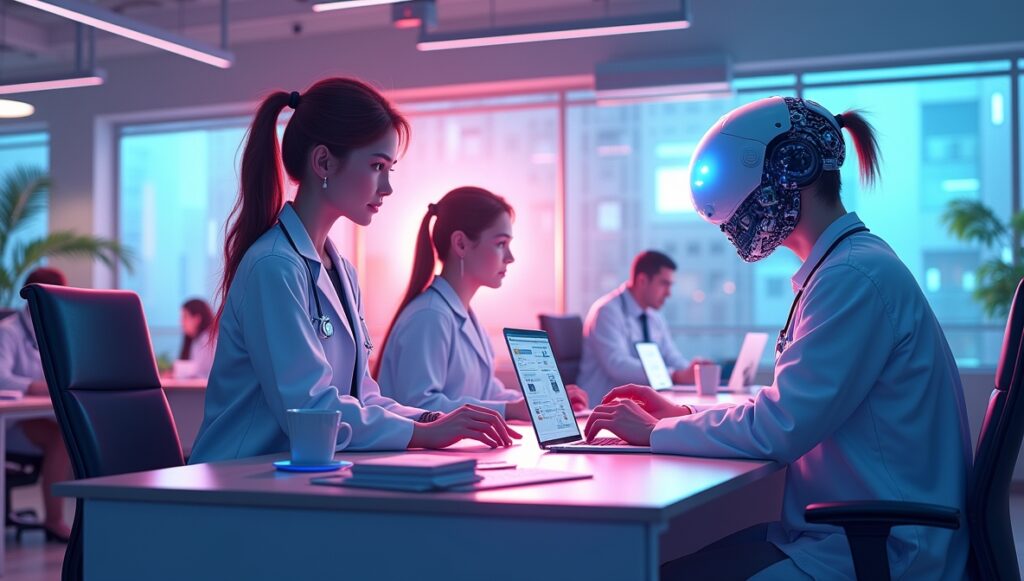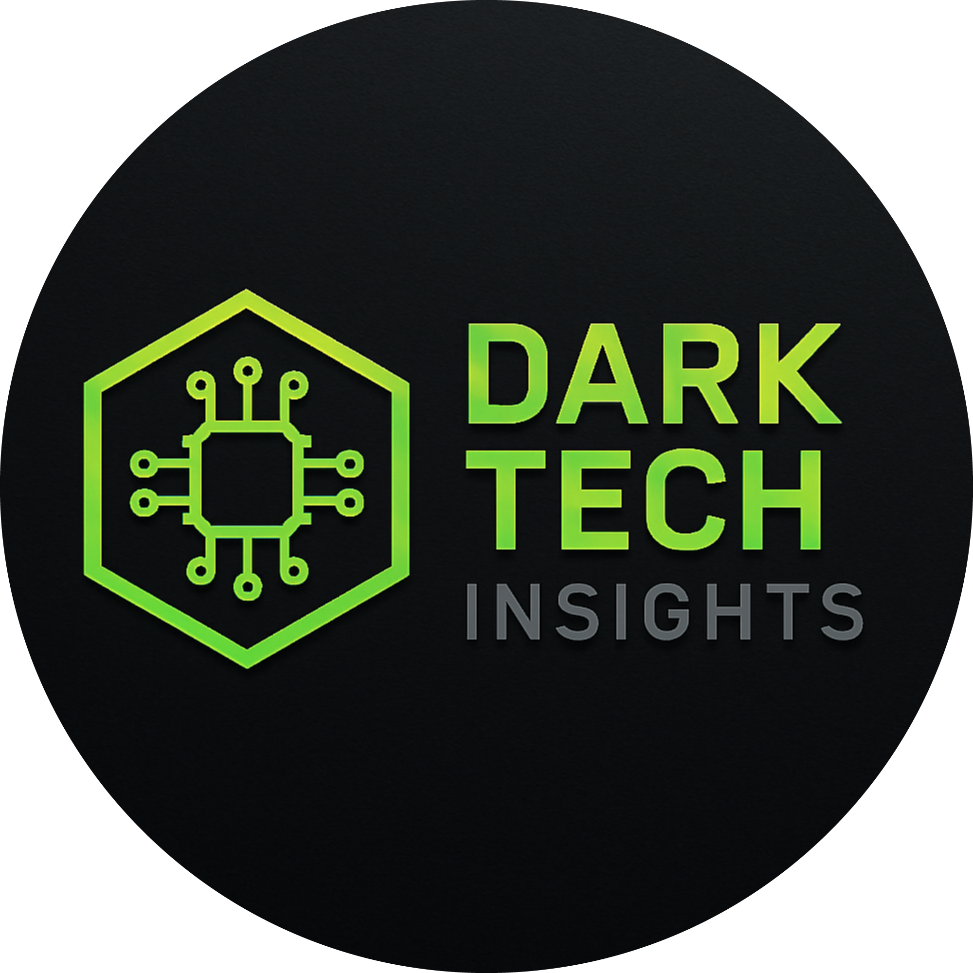How AI Will Create More Jobs Than It Replaces in the Next Decade

Table of Contents
Introduction
Artificial Intelligence (AI) is often seen as a threat to human jobs, sparking fears of mass unemployment and disruption across industries. Headlines tend to highlight how machines will replace workers, but the reality is more optimistic than that. AI is not just about automation — it’s about augmentation. Instead of completely replacing humans, AI is creating new roles, reshaping existing jobs, and fueling industries we couldn’t have imagined a decade ago.
In the next ten years, the question isn’t why AI will create more jobs, but how. From healthcare to education, from creative industries to data-driven businesses, AI is unlocking opportunities that require human collaboration, innovation, and oversight. In this article, we’ll explore the practical ways AI is set to generate more employment than it eliminates — and why workers, entrepreneurs, and businesses should view AI as a partner, not a competitor.
The Evolution of Jobs Alongside AI
AI is often seen as a job destroyer, but history shows us a different pattern: technological evolution almost always creates new opportunities that outweigh the jobs it replaces. Think about the Industrial Revolution — machines automated repetitive tasks, but they also gave rise to entirely new industries such as manufacturing, logistics, and product design. Similarly, the digital revolution displaced traditional clerical roles but created vast opportunities in IT, cybersecurity, e-commerce, and software development.
AI follows the same trajectory. While automation may replace some repetitive, rule-based roles (like basic data entry), it opens new avenues in AI model training, machine learning engineering, data labeling, algorithm auditing, prompt engineering, and ethical AI oversight. These are roles that didn’t even exist a decade ago. As AI integrates deeper into sectors like healthcare, education, finance, and creative industries, professionals who can collaborate with these systems will see their value rise rather than fall.
Moreover, AI tends to augment human ability instead of outright replacing it. Doctors, for example, are using AI to detect diseases faster, not to eliminate medical roles but to make them more efficient. Teachers are leveraging AI tutors to enhance personalized learning experiences, not to remove themselves from classrooms. Even in creative fields like writing, design, and filmmaking, AI acts as a co-pilot — giving professionals new tools for storytelling and innovation.
The key takeaway is this: jobs are not disappearing; they are evolving. Just as yesterday’s “telephone operators” became today’s “network engineers,” AI will transform roles into higher-value, more specialized opportunities that demand human creativity, emotional intelligence, and ethical reasoning — skills that no algorithm can truly replicate.
If you want more details, then see the pdf below

The New Categories of AI-Powered Jobs
AI is not just taking over repetitive tasks—it’s also creating entirely new categories of jobs that didn’t exist a decade ago. This is one of the strongest arguments for why AI is a net job creator rather than a job destroyer. As organizations integrate AI into their processes, the demand for specialists who can guide, maintain, and ethically manage these systems is rapidly growing.
Take, for example, AI trainers—people who refine algorithms by feeding them the right data and correcting outputs. This role didn’t exist in the past but is now a crucial part of the AI lifecycle. Similarly, AI ethicists are emerging to ensure that models don’t perpetuate bias or harm, while AI auditors focus on compliance, safety, and transparency in automated systems. These jobs require a blend of technical knowledge, domain expertise, and soft skills, making them unique career opportunities.
Another fast-growing area is the rise of prompt engineers, professionals who specialize in crafting precise instructions that help AI models generate accurate and useful results. As generative AI becomes mainstream, companies need people who understand both the model’s limitations and the user’s needs—bridging the gap between machine output and human intent.
Beyond specialized AI jobs, there’s also a huge ripple effect across industries. Healthcare now needs professionals who can work with AI-assisted diagnostics. Marketing agencies are hiring AI content strategists. Even agriculture is seeing demand for AI-driven crop analysts.
In essence, the conversation should not just be about AI replacing workers—it should be about how AI is expanding the job landscape. New roles are being born, traditional ones are being reshaped, and people who adapt to this shift will find opportunities in areas that didn’t exist before.

The Rise of New Industries Fueled by AI
Artificial Intelligence is not just optimizing existing jobs—it is also the driving force behind the creation of entirely new industries. Think back to the rise of the internet in the 1990s: it didn’t just transform communication, it birthed industries like e-commerce, digital marketing, and social media management. Similarly, AI today is opening doors for roles and markets we couldn’t have imagined a decade ago.
For instance, the AI healthcare industry is rapidly expanding. Beyond doctors and nurses, hospitals now require AI specialists who can train models to detect diseases earlier and more accurately. Radiology assistants powered by AI don’t replace radiologists; they speed up their work and reduce errors, creating demand for professionals who can interpret and validate AI outputs.
Another example is AI-driven content creation. While tools like ChatGPT can generate drafts, human editors, prompt engineers, and AI ethicists are needed to refine, supervise, and ensure outputs meet ethical and contextual standards. In fact, “AI alignment” and “AI auditing” are emerging career paths focused on making sure systems are safe, unbiased, and compliant with regulations.
The autonomous vehicle industry is another AI-powered sector creating ripple effects. Beyond self-driving car engineers, there’s a rising demand for safety testers, regulatory compliance experts, and infrastructure planners who can design smart cities tailored for AI-powered transport.
Lastly, we’re witnessing entirely new entrepreneurial opportunities. Small businesses and startups are building niche AI solutions for agriculture, logistics, finance, and education. This creates jobs not only in AI development but also in customer support, training, and integration.
In short, AI is not just replacing tasks—it is laying the foundation for industries that will employ millions. Just as the internet did, AI will expand the pie of opportunities rather than shrink it.
Human-AI Collaboration in the Workplace
The future of work will not be about humans competing with machines, but about humans working with machines. Artificial Intelligence is most effective when it complements human creativity, empathy, and problem-solving rather than attempting to replace them. In workplaces of the future, AI will increasingly take over repetitive, time-consuming, and data-heavy tasks—such as report generation, scheduling, and data entry—allowing employees to focus on higher-value activities like innovation, strategic planning, and building relationships.
Consider the healthcare sector: AI can process thousands of medical images in seconds, spotting potential issues with accuracy. Yet, it still requires doctors to interpret results, consult patients, and make final decisions based on human judgment and ethical considerations. In education, AI tutors can provide personalized learning pathways for students, but teachers remain essential for motivation, emotional support, and critical thinking development.
This collaborative model also reshapes leadership. Instead of merely managing teams, leaders will need to cultivate “augmented teams” where AI is treated as an intelligent assistant. Professionals skilled at asking the right questions and guiding AI outputs will be in high demand. For instance, marketers who can pair AI-generated consumer insights with cultural awareness will outperform those who rely solely on machine data.
In short, the most successful workplaces will be those that adopt a “centaur model”—where human intuition and machine intelligence combine to create outcomes neither could achieve alone. Rather than fearing replacement, workers should focus on building complementary skills, leveraging AI as a tool to extend their abilities and drive innovation.
AI-Driven Entrepreneurship and Startups
Artificial intelligence isn’t just transforming big enterprises—it’s becoming the foundation of a new wave of entrepreneurship. Startups today are leveraging AI to disrupt industries, reduce operational costs, and deliver innovative products that were unimaginable a few years ago. From healthcare to finance to content creation, AI has opened doors for small teams to compete with giants.
One of the most significant advantages AI offers entrepreneurs is scalability at low cost. Tasks like customer service, content generation, market analysis, and even product design can be automated with AI tools. For example, a two-person startup can now use AI chatbots to handle customer support 24/7, AI-driven analytics to forecast market trends, and generative design tools to create product prototypes in hours instead of weeks.
Moreover, AI has lowered the barrier to entry for innovation. A founder no longer needs massive capital to start a SaaS company or build a marketplace. Open-source AI models and cloud-based APIs allow entrepreneurs to integrate sophisticated features with minimal upfront investment. This democratization of technology enables diverse voices and ideas to flourish, leading to a more competitive and creative global startup ecosystem.
We are also seeing the rise of AI-first startups—companies built entirely around AI capabilities. These ventures aren’t just using AI as a tool but as their core product, such as AI-powered coding assistants, personalized education platforms, or automated marketing systems.
In short, AI is rewriting the rulebook of entrepreneurship. What used to take millions of dollars and large teams can now be accomplished by small, agile startups using AI as their growth engine. The next unicorn may very well emerge from a garage, powered not by sheer manpower, but by smart AI integration.
Conclusion
Artificial Intelligence is often misunderstood as a threat to human jobs, but the reality is far more promising. Rather than replacing us, AI is transforming the very nature of work. It is automating repetitive tasks, enhancing productivity, and creating entirely new opportunities that didn’t exist before. From AI-driven entrepreneurship to personalized healthcare, the potential for growth is enormous.
The next decade will not be about humans versus machines; it will be about humans working with machines. Those who learn to adapt, reskill, and embrace AI as a collaborator will thrive in this evolving landscape. Just as the Industrial Revolution created millions of new jobs despite initial fears, the AI revolution is poised to do the same. Instead of fearing AI, we should focus on leveraging it as a tool to innovate, create, and expand human potential.
If history is any guide, the jobs lost will pale in comparison to the jobs gained—especially in areas we can’t yet imagine. The future belongs to those who are willing to learn, adapt, and collaborate with AI.
FAQs
Q1. Will AI completely replace human workers?
No, AI will not completely replace humans. It will automate repetitive and low-value tasks, but new roles will emerge in fields like AI management, ethics, creative industries, and entrepreneurship.
Q2. What industries will benefit most from AI-driven job creation?
Healthcare, education, cybersecurity, software development, renewable energy, and digital marketing are among the top sectors expected to see significant AI-driven job creation.
Q3. How can workers prepare for AI-driven changes?
Workers should focus on reskilling and upskilling—learning technical skills like AI tools and coding, as well as soft skills like creativity, critical thinking, and collaboration.
Q4. Will small businesses also benefit from AI?
Yes, AI lowers the barrier for entry. Startups and small businesses can use affordable AI-powered tools for customer support, marketing, product design, and data analysis.
Q5. Is AI a threat to job security in developing countries?
Not necessarily. While some low-skill jobs may be automated, developing countries also have the chance to leapfrog into new industries by adopting AI early, creating global opportunities.
